目次
ルーゴン・マッカール叢書」第18巻『金』の概要とあらすじ
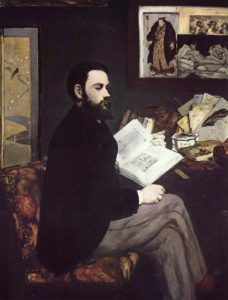 エミール・ゾラ(1840-1902) Wikipediaより
エミール・ゾラ(1840-1902) Wikipediaより
『金』はエミール・ゾラが24年かけて完成させた「ルーゴン・マッカール叢書」の第18巻目にあたり、1891年に出版されました。
私が読んだのは藤原書店出版の野村正人訳の『金』です。
今回も帯記載のあらすじを見ていきましょう。
80年代日本のバブル景気とその崩壊そのままの、19世紀金融小説!
世論誘導、粉飾決算などによる実体のない株価急騰、極限まで騰貴した株価の突然の大暴落、不良債権を抱えて自殺する事業家―高度資本主義社会における人間と社会の異常さを描ききる!
◆蕩尽せずにすまない人間とその時代
『獲物の分け前』の主人公であったサッカールは、パリ証券取引所を支配すべく一大計画を胸に秘めていた。彼は中近東の鉄道網、鉱山開発への投資を目的としたユニヴァーサル銀行を設立する。
そして新聞を巧みに利用して投資家の関心を集め、株価をつり上げていく。サッカールが証券取引所に君臨しようとするとき、そこに立ちはだかるのは巨大資本を持つユダヤ人グンデルマンである。銀行株をめぐる壮絶な仕手戦の末にサッカールは破れ、それとともに小口投資家たちの夢も無惨な結末をとげる。
サッカールの栄光と悲惨は、そのまま、万国博覧会の華やかさの裏に崩壊の影が忍び寄っていた第二帝政の運命であった。80年代日本のバブル時代を彷彿とさせるこの小説は、誇大妄想狂的な欲望に憑かれて、最後には自分を蕩尽せずにすまない人間とその時代を見事に描ききっている。
※一部改行しました
藤原書店出版 野村正人訳『金』
今作の主人公サッカールは『ルーゴン家の誕生』、『獲物の分け前』でも主要な役割を果たしていて、「ルーゴン・マッカール叢書」中でも非常に重要な人物として描かれています。
あわせて読みたい
ゾラ『ルーゴン家の誕生』あらすじと感想~衝撃の面白さ!ナポレオン第二帝政の始まりを活写する名作!...
この本はゾラの作品中特におすすめしたい名作中の名作です!
読んでいて「あぁ~さすがですゾラ先生!」と 何度心の中で うめいたことか!もう言葉のチョイス、文章のリズム、絶妙な位置で入る五感に働きかける表現、ゾラ節全開の作品です。正直、私は『居酒屋』や『ナナ』よりもこの作品の方が好きです。とても面白かったです。
あわせて読みたい
ゾラ『獲物の分け前』あらすじと感想~土地投機に熱狂する1850年代パリ。金と権力を求める人間劇!
「金」、「投機熱」、「贅沢」、「色欲」・・・
これでもかと人間の欲望を描き出すゾラ。
金を求める貪欲な人間の姿や男女の欲望を知れる恐るべき作品です。ぜひぜひおすすめしたいです!
ルーゴン・マッカール家家系図
家系図では左側のルーゴン家に位置しています。
サッカールは初登場の『ルーゴン家の誕生』の時から狡猾で強欲な人間として描かれていましたが、その金に対する鋭い嗅覚や執着、才能は、次作の『獲物の分け前』で開花することになりました。
『獲物の分け前』では主に土地投機によって巨額の金を稼いだサッカールでしたが、今作では巨大銀行を設立することで新たな戦いに身を投じていく様子が描かれています。サッカールのライバルのユダヤ人はあのロスチャイルド家がモデルになっています。フランス第二帝政期では実際に新興銀行とロスチャイルド銀行との金融戦争が勃発していました。ゾラはこうした事実を丹念に取材し、この作品に落とし込んでいます。
あわせて読みたい
横山三四郎『ロスチャイルド家』あらすじと感想~陰謀論ではないロスチャイルドの歴史を知るのにおすすめ!
ロスチャイルドといえばよく陰謀論が語られます。一概にそれらを否定するわけではありませんが世に出ているロスチャイルドの本や記事がほとんどが陰謀論的なものなのではないかというほどです。
ですがそんな中この本は陰謀論的ではなく歴史的にどのような過程を経てこの一族が力を得てきたかが語られる、とてもありがたい参考書となっています
そしてあらすじにもありますように、日本のバブル時代の熱狂を彷彿とさせるようなシーンが多々出てきます。あのバブルよりも100年以上も前にすでにパリでは同じような狂乱が起こっていたのですね。
巨大な資本があらゆるものを吸い上げ、そして崩壊していく。
そこに巻き込まれた人間は、働かずとも巨額の利益を得ることを夢見て投資するも、すべてを失ってしまいます。
何十年も勤勉に働いていた真面目な夫婦ですらその誘惑には抗えず、汗水たらして働くことが馬鹿らしく思うようになっていく様は恐怖すら感じさせます。
株価の高騰や配当、金利収入が人を狂わす過程をこの小説では丹念に描いています。
感想―ドストエフスキー的見地から
サッカールはたしかに金に対する猛烈な欲望を持っています。
しかし彼は貯金することには興味がありません。
彼は守銭奴ではなく、金の持つパワーそのものに魅了されているのです。
戦うこと、投機の激戦地で最強の人間になること、喰われないために他人を喰うこと、それは、栄光と快楽への欲求のつぎに、彼が事業に熱中する大きなそしてただひとつの理由だった。彼が蓄財しないのは、大きな数字と数字を戦わせ、軍隊を差し向けるように財産を放ち、敵対する大金を激突させて、勝利と敗退を決めるという別の喜びがあるからで、それが彼を夢中にさせていた。
藤原書店出版 野村正人訳『金』P69-70
金があればあらゆるものを買うことができます。
「いやいや、お金で買えないものもあるでしょ」というのももちろんなのですが、やはりお金のすごいところは「本来計量できないものも数値化できてしまうところ」にあると私は思うのです。
お金があれば、あらゆるものを金銭的な尺度で測ることができます。それはものだけでなく、労働などのサービスも含まれます。
例えばですが掃除を2時間かけて自分でやる代わりに、お金を払うことで人に動いてもらうことができます。
ここでは自分の掃除2時間分がお金に換算され、それを買ったということになります。
つまり支払った掃除2時間分のパワーをお金が持っているということになるのです。
では10億円持っていたらどれほどのパワーを持っていることになるのでしょうか。
100億円なら?1000億円なら?1兆円なら?
こうしてサッカールは無限のパワーを求めて戦うのです。
訳者解説にも次のように述べられています。
こうした金に対する考えは、ゾラ自身のものでもあった。次作の『金』を語る新聞のインタビューの中で彼は述べている。「私は金を持ち上げようと思っています。金が持っている惜しみなくものを生み出す力、その溢れんばかりの力を絶賛するつもりです。私は金を罵る人たちの意見には賛成できないのです。私の出発点となる原則は、金をうまく使えば人類全体のためになるというものです」(『ジル・プラス』一八九〇年四月八日号)
藤原書店出版 野村正人訳『金』P562
作中でもサッカールのビジネスパートナーであるカロリーヌという女性を通してゾラはこう語ります。
そのときカロリーヌ夫人は突然、金こそ明日の人間が成長するための肥料なのだと悟ったのだった。サッカールの言葉が、投機についての理論の端々が甦ってきた。性欲がなければ子供が産まれないように、投機がなければ生き生きと実り豊かな大企業も存在しないという考えを思い出した。(中略)
金は毒をまき散らし破壊もするが、ありとあらゆる社会的な植生の誘因になり、人々を和解させ、地上に平和をもたらす大工事に必要な腐植土ともなる。先ほど金を呪っていた彼女は、今度は畏怖するように金を賛美しているのだった。山を削り、海峡を埋め、人間が大地に住めるような環境をつくり、そして人間を仕事から解放し、機械の操作をするだけでよいようにしてやれるのは、金だけではあるまいか。あらゆる悪が金から生まれるように、善も金から生まれてくる。彼女は自分という人間の奥深くから揺すぶられて、もう何がなんだかわからなくなってしまっていた。
藤原書店出版 野村正人訳『金』P307-308
ゾラが「ルーゴン・マッカール叢書」で描いてきた第二帝政期は急速に経済が発展していった時代でした。
このとき生まれた消費資本主義は私たちの生きる現代社会と直結しています。
金は悪であるという風潮は今でもどこか私たちの中に刻み込まれた感覚であると思います。
しかし金は同時にこの社会そのものを動かしている原動力でもあり、そのことは否定できない事実ではないかとゾラは私たちに問いかけるのです。
たしかに金は人を狂わし、強欲さは人を傷つけます。
しかし、うまく金を使えば、それは人類を幸福にするし、現にそれは今もなされているとゾラは言うのです。
さあ、このゾラの意見を私たちはどう受け取るでしょうか。
お金の動き、人間の欲望をはたしてうまくコントロールすることなどできるのでしょうか。
ドストエフスキーは人間は非合理的であって、機械のように最善の手を打ち続けられるのならそんなものは人間じゃないと述べます。
利益になるとわかっていても、「そうしたくない」と思ってしまうのが人間だと彼は言うのです。
皆さんはどう思いますか?
たしかに金は絶対悪でも絶対善ではないということは私も納得できます。
しかし、それをうまくコントロールできるかどうかとなると、う~ん…と言わざるをえないのではないかと私は思ってしまいます。
とはいえお金があり、経済が回るからこそ私たちの生活が円滑に回り、人と人とのつながりが生まれてくるのも事実。お金のいい面も確実に存在していることも改めて感じます。
今作の『金』はお金についてとても考えさせられました。
現代は超巨大企業が世界の富の大半を所有し、格差がかつてないほどに広がっています。
そうした現実を考える上でも、非常に役に立つ一冊であるように私は思いました。
以上、「ゾラ『金』あらすじと感想~19世紀パリで繰り広げられたロスチャイルドVSパリ新興銀行の金融戦争!」でした。
Amazon商品ページはこちら↓
金 (ゾラ・セレクション)
次の記事はこちら
あわせて読みたい
ゾラ『壊滅』あらすじと感想~フランス第二帝政を崩壊させた1870年普仏戦争を見事に活写! 戦争文学の...
今作は日本ではあまり知られてはいませんが戦争文学の金字塔と評価されている作品です。
ゾラ得意の五感を刺激する文章はまるで自分が間近で戦争を見ているかのような感覚にさせます。
ゾラはやはり芸術家です。読む者に恐るべきインスピレーション、イメージ、ショックを与えます。彼は単に世の中の相を写し取っただけではなく、それを芸術に昇華させています。
『壊滅』は叢書のクライマックスにふさわしい重厚な作品でした。戦争文学の傑作、金字塔という名声は疑いようもありません。素晴らしい作品でした。
前の記事はこちら
あわせて読みたい
ゾラ『獣人』あらすじと感想~『罪と罰』にインスパイアされたゾラの鉄道サスペンス!殺人は理性か本能か!
理性で殺したラスコーリニコフ、本能で殺したジャック。
この二人の主人公の対比はドストエフスキーとゾラの人間観の違いを最も明確に示しているのではないでしょうか。
『罪と罰』にはまった人ならぜひともこちらの作品も読んで頂けたらなと思います。
バルザックの『ゴリオ爺さん』(以下の記事参照)と共におすすめしたい一冊です。
関連記事
あわせて読みたい
尾﨑和郎『ゾラ 人と思想73』あらすじと感想~ゾラの生涯や特徴、ドレフュス事件についても知れるおすす...
文学史上、ゾラほど現代社会の仕組みを冷静に描き出した人物はいないのではないかと私は思っています。
この伝記はそんなゾラの生涯と特徴をわかりやすく解説してくれる素晴らしい一冊です。ゾラファンとしてこの本は強く強く推したいです。ゾラファンにとっても大きな意味のある本ですし、ゾラのことを知らない方にもぜひこの本はおすすめしたいです。こんな人がいたんだときっと驚くと思います。そしてゾラの作品を読みたくなることでしょう。
あわせて読みたい
(8)パリのゾラ『ルーゴン・マッカール叢書』ゆかりの地を一挙紹介~フランス第二帝政のパリが舞台
今回の記事では私が尊敬する作家エミール・ゾラの代表作『ルーゴン・マッカール叢書』ゆかりの地を紹介していきます。
『ルーゴン・マッカール叢書』はとにかく面白いです。そしてこの作品群ほど私たちの生きる現代社会の仕組みを暴き出したものはないのではないかと私は思います。
ぜひエミール・ゾラという天才の傑作を一冊でもいいのでまずは手に取ってみてはいかがでしょうか。そしてその強烈な一撃にぜひショックを受けてみて下さい。
あわせて読みたい
本当にいい本とは何かー時代を経ても生き残る名作が古典になる~愛すべきチェーホフ・ゾラ
チェーホフもゾラも百年以上も前の作家です。現代人からすれば古くさくて小難しい古典の範疇に入ってしまうかもしれません。
ですが私は言いたい!古典と言ってしまうから敷居が高くなってしまうのです!
古典だからすごいのではないのです。名作だから古典になったのです。
チェーホフもゾラも、今も通ずる最高の作家です!
あわせて読みたい
フランス人作家エミール・ゾラとドストエフスキー ゾラを知ればドストエフスキーも知れる!
フランス第二帝政期は私たちの生活と直結する非常に重要な時代です。
そしてドストエフスキーはそのようなフランスに対して、色々と物申していたのでありました。
となるとやはりこの時代のフランスの社会情勢、思想、文化を知ることはドストエフスキーのことをより深く知るためにも非常に重要であると思いました。
第二帝政期のフランスをさらに深く知るには何を読めばいいだろうか…
そう考えていた時に私が出会ったのがフランスの偉大なる作家エミール・ゾラだったのです。
あわせて読みたい
『居酒屋』の衝撃!フランス人作家エミール・ゾラが面白すぎた件について
ゾラを知ることはそのままフランス社会を学ぶことになり、結果的にドストエフスキーのヨーロッパ観を知ることになると感じた私は、まずゾラの代表作『居酒屋』を読んでみることにしました。
そしてこの小説を読み始めて私はとてつもない衝撃を受けることになります。
あわせて読みたい
「ルーゴン・マッカール叢書」一覧~代表作『居酒屋』『ナナ』を含むゾラ渾身の作品群
これまで20巻にわたり「ルーゴン・マッカール叢書」をご紹介してきましたが、この記事ではそれらを一覧にし、それぞれの作品がどのような物語かをざっくりとまとめていきます。
あわせて読みたい
僧侶が選ぶ!エミール・ゾラおすすめ作品7選!煩悩満載の刺激的な人間ドラマをあなたに
世の中の仕組みを知るにはゾラの作品は最高の教科書です。
この社会はどうやって成り立っているのか。人間はなぜ争うのか。人間はなぜ欲望に抗えないのか。他人の欲望をうまく利用する人間はどんな手を使うのかなどなど、挙げようと思えばきりがないほど、ゾラはたくさんのことを教えてくれます。
そして何より、とにかく面白い!私はこれまでたくさんの作家の作品を読んできましたが、ゾラはその中でも特におすすめしたい作家です!
あわせて読みたい
19世紀後半のフランス社会と文化を知るならゾラがおすすめ!エミール・ゾラ「ルーゴン・マッカール叢...
前回の記事「エミール・ゾラが想像をはるかに超えて面白かった件について―『居酒屋』の衝撃」ではエミール・ゾラの「ルーゴン・マッカール叢書」なるものがフランス第二帝政のことを学ぶにはもってこいであり、ドストエフスキーを知るためにも大きな意味があるのではないかということをお話ししました。
この記事ではその「ルーゴン・マッカール叢書」とは一体何なのかということをざっくりとお話ししていきます。
あわせて読みたい
木村泰司『印象派という革命』あらすじと感想~ゾラとフランス印象派―セザンヌ、マネ、モネとの関係
前回までの記事では「日本ではなぜゾラはマイナーで、ドストエフスキーは人気なのか」を様々な面から考えてみましたが、今回はちょっと視点を変えてゾラとフランス印象派絵画についてお話ししていきます。
私はゾラに興味を持ったことで印象派絵画に興味を持つことになりました。
それとは逆に、印象派絵画に興味を持っている方がゾラの小説につながっていくということもあるかもしれません。ぜひともおすすめしたい記事です
あわせて読みたい
エミール・ゾラの小説スタイル・自然主義文学とは~ゾラの何がすごいのかを考える
ある作家がどのようなグループに属しているのか、どのような傾向を持っているのかということを知るには〇〇主義、~~派という言葉がよく用いられます。
ですが、いかんせんこの言葉自体が難しくて余計ややこしくなるということがあったりはしませんでしょうか。
そんな中、ゾラは自分自身の言葉で自らの小説スタイルである「自然主義文学」を解説しています。それが非常にわかりやすかったのでこの記事ではゾラの言葉を参考にゾラの小説スタイルの特徴を考えていきます。
あわせて読みたい
日本ではなぜゾラはマイナーで、ドストエフスキーは人気なのか―ゾラへの誤解
前回の記事ではフランスでの発行部数からゾラの人気ぶりを見ていきました。
その圧倒的な売れ行きからわかるように、ゾラはフランスを代表する作家です。
ですが日本で親しまれている大作家が数多くいる中で、ゾラは日本では異様なほど影が薄い存在となっています。
なぜゾラはこんなにも知名度が低い作家となってしまったのでしょうか。
今回の記事では日本でゾラがマイナーとなってしまった理由と、それと比較するためにドストエフスキーがなぜ日本で絶大な人気を誇るのかを考えていきたいと思います。
あわせて読みたい
ドストエフスキー『未成年』あらすじと感想~晩年の隠れた名作!「私はロスチャイルドになりたいのだ」
ドストエフスキーが描くロシアの混沌は、まだまだ未熟な「未成年」アルカージイを木っ端微塵に打ち砕くほど複雑怪奇なものでした。
ドストエフスキーのかつての理想郷「ヨーロッパ」の没落と、ロシアの混沌。
そんな八方ふさがりの悲惨な状況の中で何が人々を救いうるのか。それをドストエフスキーはこの作品で読者に問いかけます。
そしてこの作品で提出された問題はその後ますます熟成し最後の大作『カラマーゾフの兄弟』へと組み込まれていきます。
『未成年』は他の作品と比べると影が薄い作品となってしまっていますが、思想的な意味では非常に重要なものを含んだ作品です。
あわせて読みたい
ゾラ『ルーゴン家の誕生』あらすじと感想~衝撃の面白さ!ナポレオン第二帝政の始まりを活写する名作!...
この本はゾラの作品中特におすすめしたい名作中の名作です!
読んでいて「あぁ~さすがですゾラ先生!」と 何度心の中で うめいたことか!もう言葉のチョイス、文章のリズム、絶妙な位置で入る五感に働きかける表現、ゾラ節全開の作品です。正直、私は『居酒屋』や『ナナ』よりもこの作品の方が好きです。とても面白かったです。
あわせて読みたい
ゾラ『パリの胃袋』あらすじと感想~まるで仏教書!全てを貪り食うパリの飽くなき欲望!食欲は罪か、そ...
私は『ルーゴン・マッカール叢書』でどの作品が1番好きかと言われたらおそらくこの『パリの胃袋』を挙げるでしょう。それほど見事に人間の欲望を描いています。
ゾラ得意の映画的手法や、匂いなどの五感を刺激する描写、欲望をものや動物を描くことで比喩的に表現する手腕など、すばらしい点を列挙していくときりがないほどです。
あわせて読みたい
ゾラの代表作『居酒屋』あらすじと感想~パリの労働者と酒、暴力、貧困、堕落の必然的地獄道。
『居酒屋』は私がゾラにはまるきっかけとなった作品でした。
ゾラの『居酒屋』はフランス文学界にセンセーションを起こし、この作品がきっかけでゾラは作家として確固たる地位を確立するのでありました。
ゾラ入門におすすめの作品です!
あわせて読みたい
ゾラの代表作『ナナ』あらすじと感想~舞台女優の華やかな世界の裏側と上流階級の実態を暴露!
ゾラの代表作『ナナ』。フランス帝政の腐敗ぶり、当時の演劇界やメディア業界の舞台裏、娼婦たちの生活など華やかで淫蕩に満ちた世界をゾラはこの小説で描いています。
欲望を「食べ物」に絶妙に象徴して描いた作品が『パリの胃袋』であるとするならば、『ナナ』はど直球で性的な欲望を描いた作品と言うことができるでしょう。
あわせて読みたい
ゾラ『ごった煮』あらすじと感想~ブルジョワの偽善を暴く痛快作!貴婦人ぶっても一皮むけば…
この作品は『ボヌール・デ・ダム百貨店』の物語が始まる前の前史を描いています。
主人公のオクターヴ・ムーレは美男子で女性にモテるプレイボーイです。そして彼がやってきたアパートでは多くのブルジョワが住んでいてその奥様方と関係を持ち始めます。
そうした女性関係を通してオクターヴは女性を学び、大型商店を営むというかねてからの野望に突き進もうとしていきます。
あわせて読みたい
ゾラ『ボヌール・デ・ダム百貨店』あらすじと感想~欲望と大量消費社会の秘密~デパートの起源を知るた...
この作品はフランス文学者鹿島茂氏の『 デパートを発明した夫婦』 で参考にされている物語です。
ゾラは現場での取材を重要視した作家で、この小説の執筆に際しても実際にボン・マルシェやルーブルなどのデパートに出掛け長期取材をしていたそうです。
この本を読むことは私たちが生きる現代社会の成り立ちを知る手助けになります。
もはや街の顔であり、私たちが日常的にお世話になっているデパートや大型ショッピングセンターの起源がここにあります。
非常におすすめな作品です。
あわせて読みたい
ゾラ『ジェルミナール』あらすじと感想~炭鉱を舞台にしたストライキと労働者の悲劇 ゾラの描く蟹工船
『ジェルミナール』では虐げられる労働者と、得体の知れない株式支配の実態、そして暴走していく社会主義思想の成れの果てが描かれています。
社会主義思想と聞くとややこしそうな感じはしますが、この作品は哲学書でも専門書でもありません。ゾラは人々の物語を通してその実際の内容を語るので非常にわかりやすく社会主義思想をストーリーに織り込んでいます。
あわせて読みたい
ゾラ『制作』あらすじと感想~天才画家の生みの苦しみと狂気!印象派を知るならこの1冊!
この物語はゾラの自伝的な小説でもあります。主人公の画家クロードと親友の小説家サンドーズの関係はまさしく印象派画家セザンヌとゾラの関係を彷彿させます。
芸術家の生みの苦しみを知れる名著です!
あわせて読みたい
ゾラ『獣人』あらすじと感想~『罪と罰』にインスパイアされたゾラの鉄道サスペンス!殺人は理性か本能か!
理性で殺したラスコーリニコフ、本能で殺したジャック。
この二人の主人公の対比はドストエフスキーとゾラの人間観の違いを最も明確に示しているのではないでしょうか。
『罪と罰』にはまった人ならぜひともこちらの作品も読んで頂けたらなと思います。
バルザックの『ゴリオ爺さん』(以下の記事参照)と共におすすめしたい一冊です。
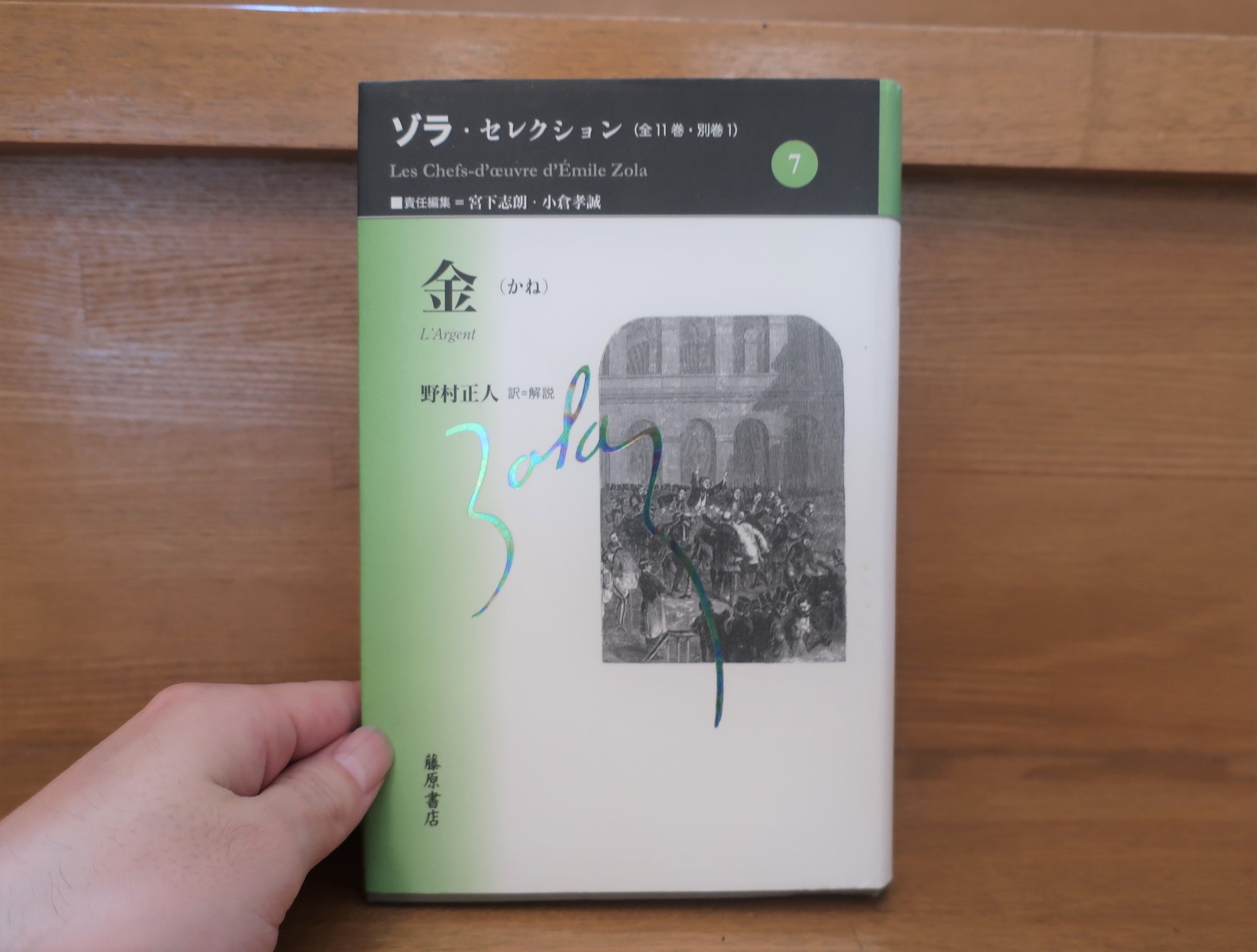

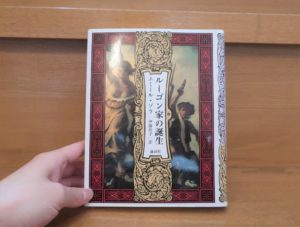
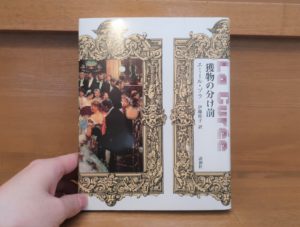
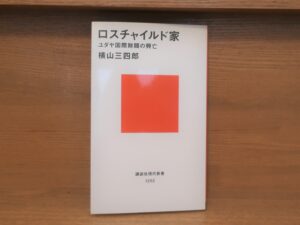
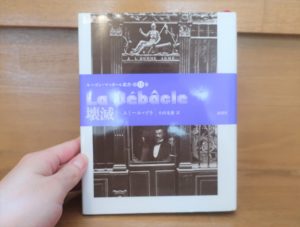


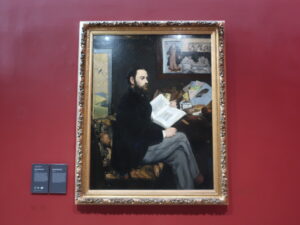
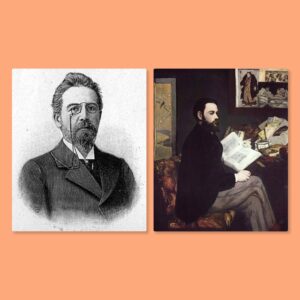
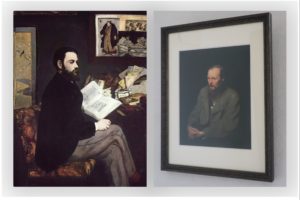

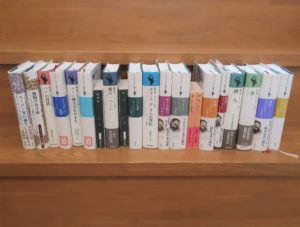



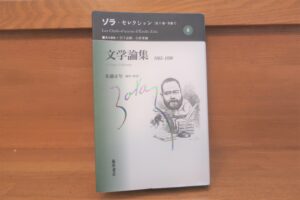

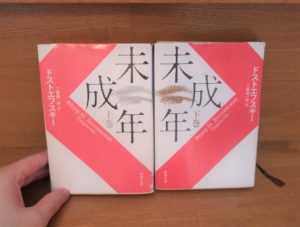




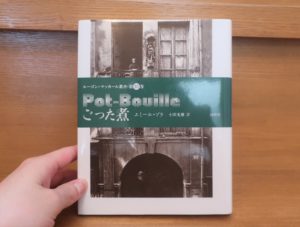
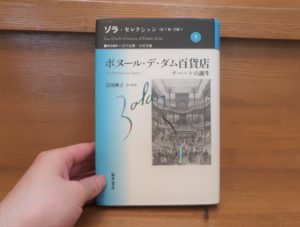

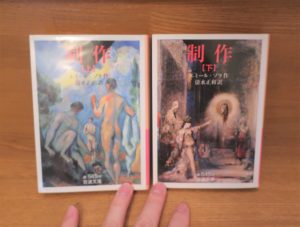


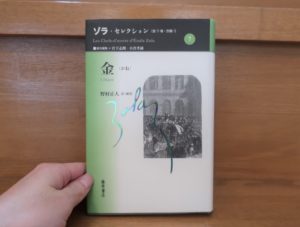




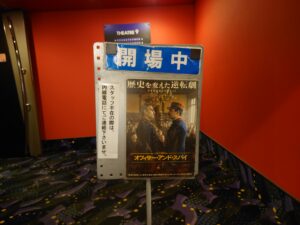
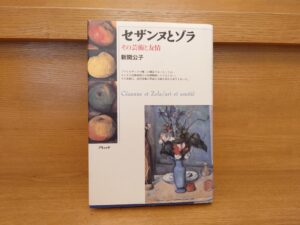
コメント